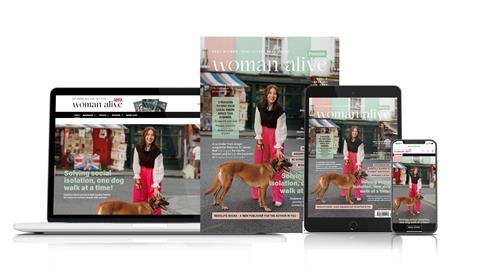Around ‘15% of victims of trafficking are thought to be trafficked by an intimate partner’ says Ben Ryan from Medaille Trust, a charity that works to support survivors of modern slavery. He explains how the longing for love can make women dangerously vulnerable.

God is love. So it says in 1 John, verse 4. In Lent Christians are called to remember the extraordinary love that God has for us, even to the point of sending his only son to be crucified. We, as Christians, are called to love God and to love one another. It is an essential part of what it is to be human; a sacred value.
This year the beginning of Lent also coincides with Valentine’s Day. There will be adverts, deals and relentless media focus on romantic love, much of it seeking to capitalise on that natural yearning that humans have to love and to be loved.
That sense of yearning is hugely powerful, but it is worth remembering that that power can also be turned towards abuse and exploitation.
That sense of yearning is hugely powerful, but it is worth remembering that that power can also be turned towards abuse and exploitation.
I work for Medaille Trust, a charity that works to support survivors of modern slavery and human trafficking. Among the most heartbreaking stories we hear from our service users are from women who are ensnared by the “boyfriend trap”.
This is a form of grooming, where vulnerable women and girls are convinced they are in a romantic relationship only to be trapped into trafficking and sexual exploitation.
One of our service users is Justine*. When she was 18 she met Dean online. He was charming, attractive and they soon had a relationship. Dean showered Justine with romantic gestures and she fell for him completely.
One day Dean said he’d found her a job, something Justine, who was unemployed, desperately needed. He told her to get dressed up and look nice, and she did, borrowing a new dress from a friend.
He drove her to a casino. Justine was told to sit by a slot machine while a man went to find men who were willing to pay to spend the night with her. Justine felt forced to go along with it as she was terrified of repercussions. After a couple of months, Dean suggested that they should move to another country for a fresh start. Once there, Justine continued to be exploited, forced to see as many as ten clients a night.
Though now manipulating, controlling and violent, Justine still considered Dean to be her boyfriend.
Though now manipulating, controlling and violent, Justine still considered Dean to be her boyfriend. ‘I would tell him that I loved him, and he would say back “you always will love me”’. After almost two years under her “boyfriend’s” control, Justine finally found the courage to get out. She found a phone and called the police.
Read more on trafficking
I wish I could tell you that Justine’s story was uncommon. It isn’t.
As many as 15% of victims of trafficking are thought to be trafficked by an intimate partner. Overwhelmingly these are women and girls trafficked into sexual exploitation. There were more than 2,600 (including over 1,100 children) potential victims of sexual exploitation referred into the National Referral Mechanism (a UK Government organised framework for identifying and referring potential victims of modern slavery and ensuring they receive the appropriate support.) in 2022. A significant proportion of them are likely to have been trafficked and controlled by someone they thought loved them.
This Valentine’s Day, and throughout the season of Lent, when you’re reflecting on the themes of love and sacrifice we’re asking you to keep stories like Justine’s in mind, to pray for survivors, watch for the signs of modern slavery and, if you ever see anything that doesn’t look right, make use of the modern slavery helpline, or ask a frontline charity for advice.
*all names have been changed
If any of these issues have affected you, you can call Premier Lifeline for support. Premier Lifeline is a national, confidential helpline offering a listening ear, emotional and spiritual support from a Christian perspective. If you would like someone to talk with and pray for you, call Premier Lifeline on 0300 111 0101.






























No comments yet